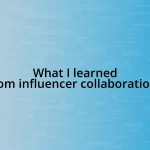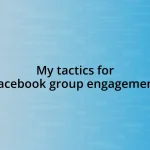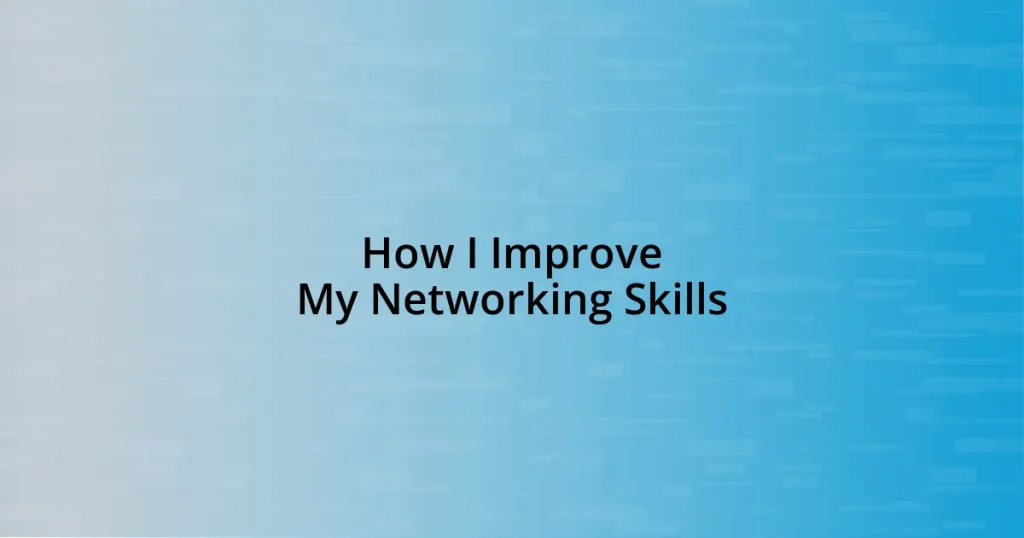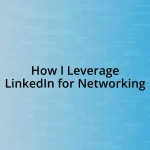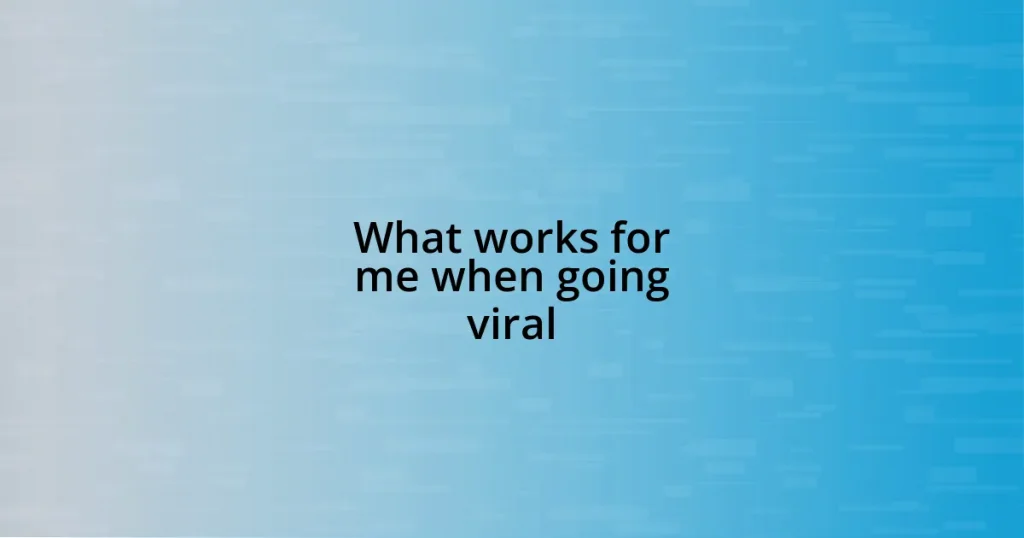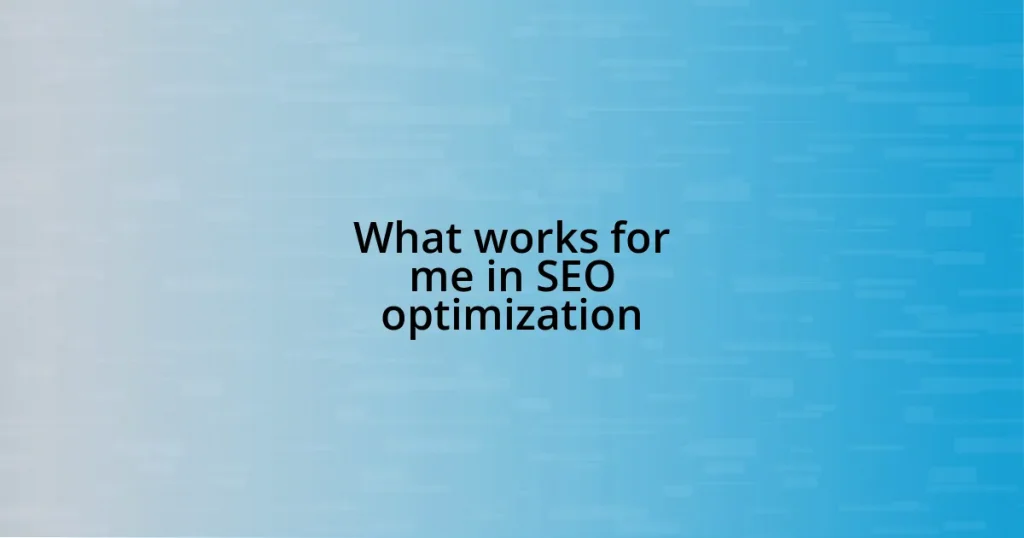Key takeaways:
- Networking is about quality relationships, emphasizing active listening and genuine conversations over quantity.
- Setting clear networking goals directs efforts, making interactions more purposeful and meaningful.
- Follow-up messages should be personalized and timely to reinforce connections and display genuine interest.
- Reflecting on networking experiences helps identify strengths and areas for improvement, leading to better ongoing engagement.
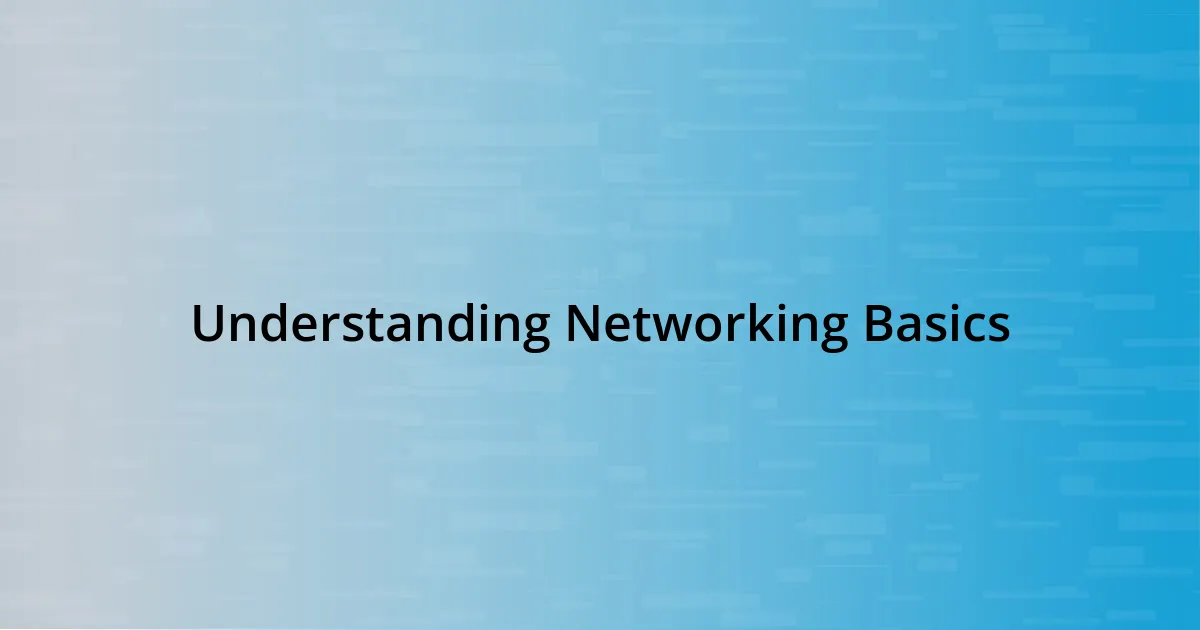
Understanding Networking Basics
Networking is fundamentally about building relationships, not just exchanging business cards. I remember attending my first networking event and feeling overwhelmed by the sheer number of people. I wondered, “How do I make a meaningful connection in this chaos?” It was in those moments that I realized networking is less about quantity and more about quality—fostering genuine conversations that can lead to valuable relationships.
Understanding the basics also means recognizing that effective networking requires active listening. I vividly recall a chat with a mentor, who emphasized, “People appreciate being heard more than anything.” This advice transformed my approach. Instead of eagerly waiting for my turn to speak, I learned to ask open-ended questions that encourage others to share their experiences. Have you ever seen someone light up when they were truly listened to? It’s a powerful reminder of how simple it can be to cultivate rapport.
Additionally, I’ve found that following up after initial meetings is a keystone of successful networking. After connecting with someone, I make it a point to send a brief message reflecting on our conversation. It might seem small, but it reinforces your interest and helps maintain that connection. Have you noticed how few people take this step? Building on that foundation over time can yield incredible opportunities that you might never have encountered otherwise.
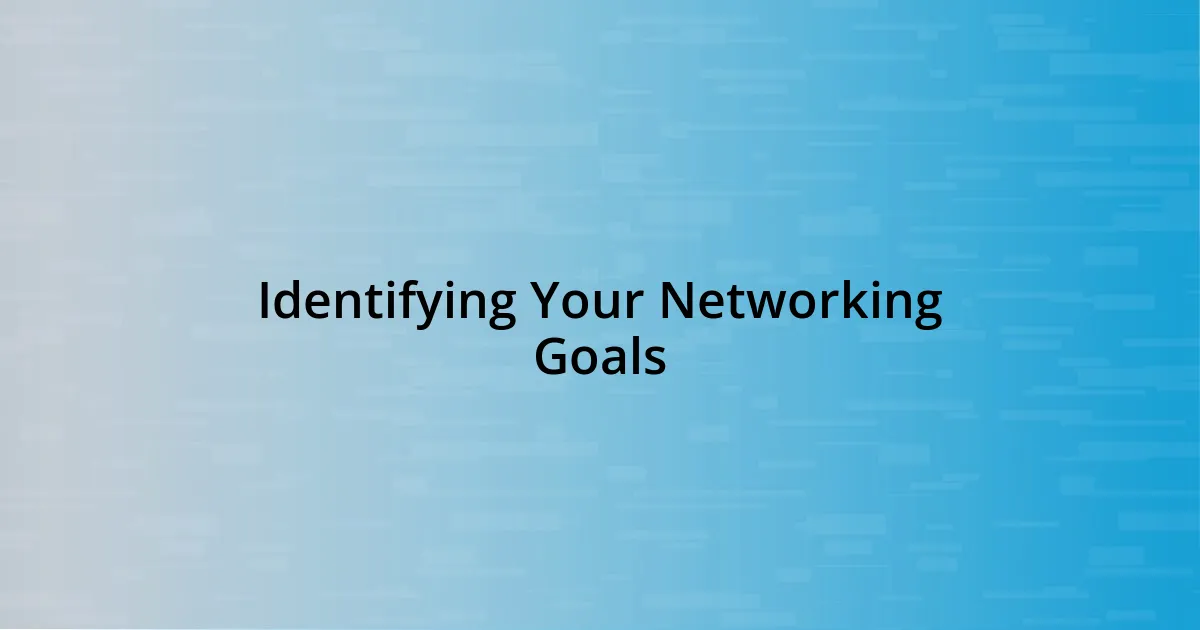
Identifying Your Networking Goals
Setting clear networking goals can significantly enhance your experience and effectiveness in building connections. I remember when I first started out, I attended events without any real direction. It felt like casting a wide net, hoping for a good catch, but often left me feeling lost. Now, I take time to define what I want to achieve before stepping out. This could range from seeking mentorship to exploring job opportunities or simply broadening my industry knowledge. Understanding these objectives helps filter connections, making every interaction more purposeful.
To help you identify your own networking goals, consider the following:
- Professional Development: What specific skills or knowledge do you want to gain?
- Relationship Building: Are you looking to form deeper ties within your industry?
- Opportunities: Do you seek new career openings or collaborations?
- Mentorship: Are you hoping to connect with experienced professionals who can guide you?
- Feedback: Are you interested in obtaining constructive criticism about your work or ideas?
Reflecting on these areas can clarify your intentions, allowing for more meaningful interactions in your networking journey.
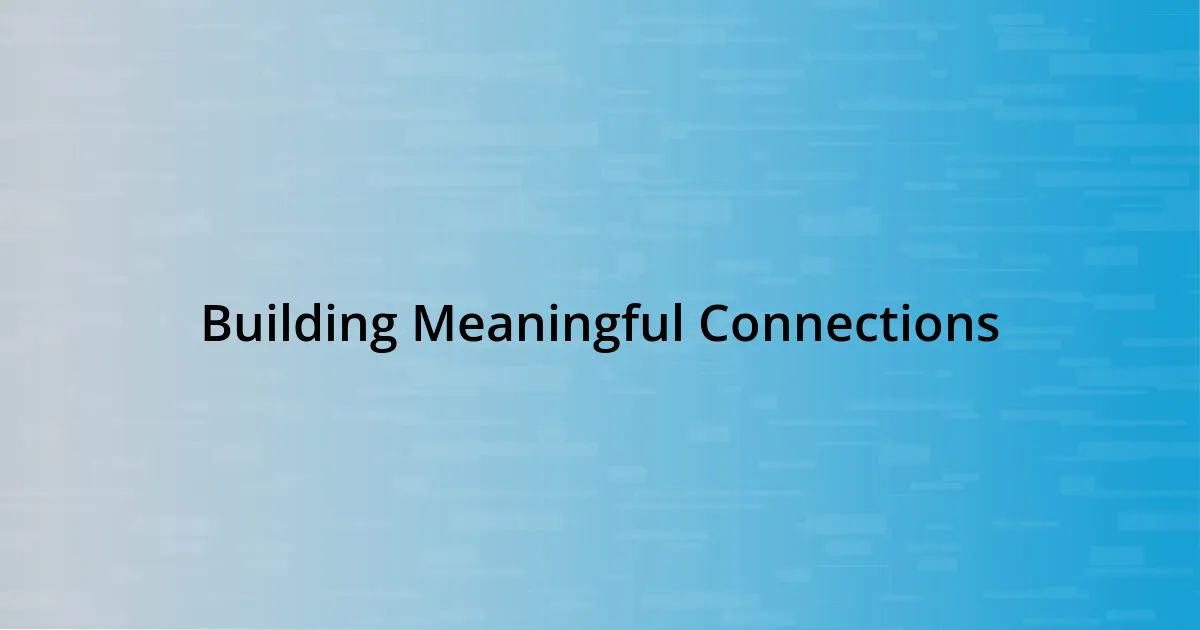
Building Meaningful Connections
Building meaningful connections is about discovering shared interests and passions. I remember meeting someone at a conference who was just as enthusiastic about sustainable business practices as I was. Our conversation flowed effortlessly, and it wasn’t just about exchanging ideas; it felt like a deep, genuine dialogue. Have you ever experienced that moment when you realize you’ve met someone who truly understands your perspective? It’s remarkable how such connections can ignite collaboration and growth.
Another vital aspect is vulnerability. When I first started networking, I hesitated to share my challenges, worried it would make me seem less capable. But I soon learned that being open about struggles fosters trust and authenticity. For instance, during a small group discussion, I shared my difficulties with navigating career transitions. To my surprise, others opened up as well, revealing their own hurdles. This candid exchange enriched our conversations, proving that we were not just professionals but individuals navigating a shared journey.
Lastly, I’ve adopted the strategy of nurturing my connections over time. I once met a fellow entrepreneur at a workshop and connected with her on social media. Instead of letting our initial conversation fade, I would regularly engage with her posts and share relevant articles. One day, she reached out, sharing an opportunity that was a perfect fit for me. It’s moments like this that remind me how thoughtful engagement can turn casual encounters into meaningful partnerships.
| Element | Importance |
|---|---|
| Shared Interests | These create a natural foundation for discussion. |
| Vulnerability | Open sharing fosters trust and deeper relationships. |
| Nurturing Connections | Ongoing engagement turns superficial ties into valuable partnerships. |
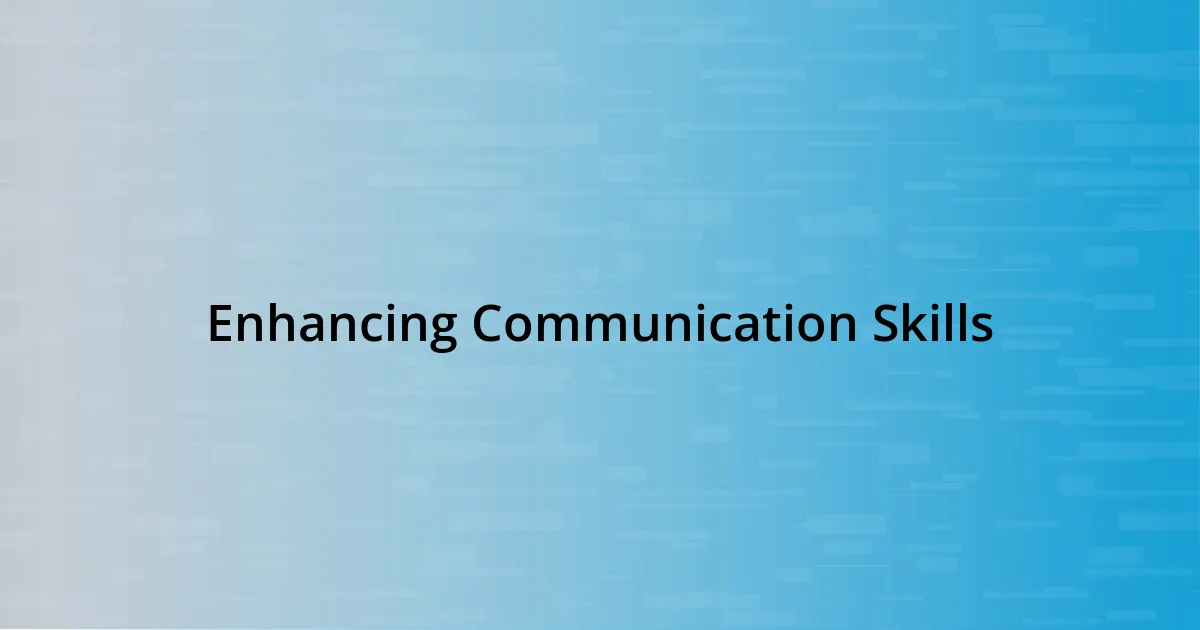
Enhancing Communication Skills
Enhancing Communication Skills
Effective communication is the cornerstone of successful networking. Personally, I’ve found that actively listening is just as important as speaking. I recall a networking event where I made a conscious effort to focus entirely on the person in front of me. Instead of waiting for my turn to talk, I engaged with their story, asking questions that showed genuine interest. This not only deepened our conversation but also made them feel valued. Have you ever noticed how people light up when they see you’re truly listening? It’s a game changer.
I’ve also learned the power of clarity in my communications. In my early networking days, I often found myself rambling, losing my audience’s interest. One day, during a casual lunch, a mentor advised me to be concise. She suggested using the “elevator pitch” format to present myself clearly and compellingly. Now, I practice distilling my thoughts into brief, impactful statements, which has led to more engaging and memorable interactions. It’s incredible how expressing ideas succinctly can enhance understanding and connection with others.
Moreover, non-verbal communication holds immense significance. I still remember a time when I spoke at a small gathering, fully prepared with my notes. But as I observed my audience’s body language, I realized my tone and gestures weren’t resonating with them. From that moment on, I made it a point to be more mindful of my facial expressions and eye contact. It’s fascinating how a smile or a nod can convey enthusiasm and openness. Have you considered how your body language reflects your message? Paying attention to this can transform the way others perceive your communication skills.
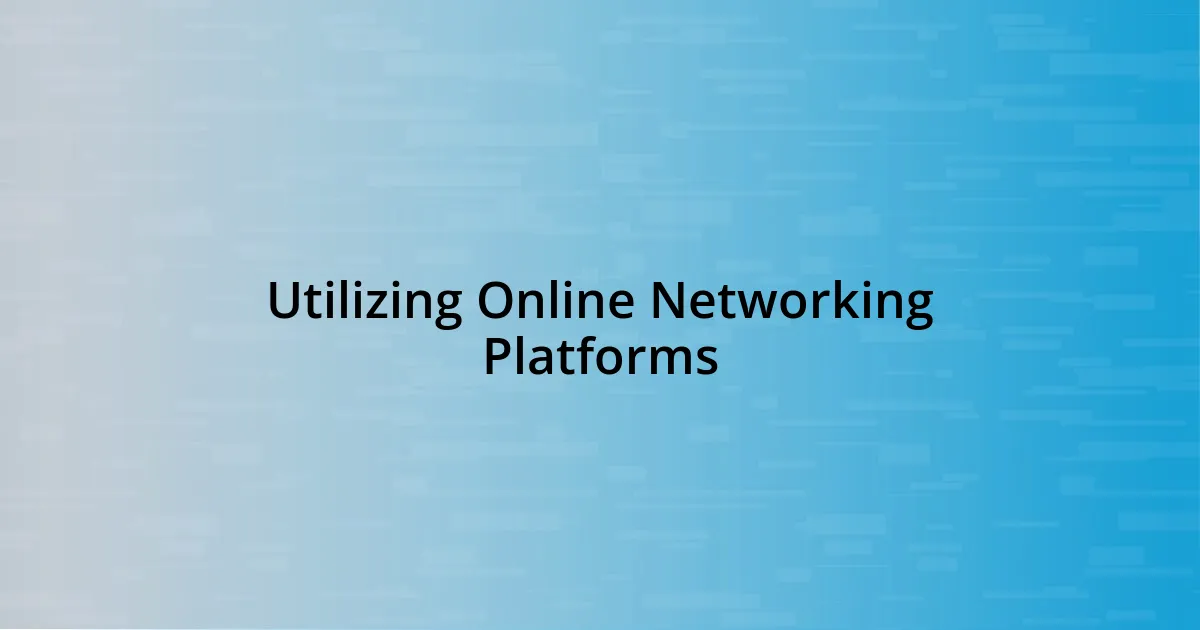
Utilizing Online Networking Platforms
Utilizing online networking platforms has transformed the way I connect with others professionally. I remember when I first signed up for LinkedIn. Initially, it felt overwhelming, but I soon realized that this platform is a treasure trove for building relationships. I started by joining groups relevant to my interests, where members share insights and opportunities. Have you ever joined an online community and discovered conversations that just click with you? That’s the kind of synergy that can lead to meaningful connections.
As I delved deeper into online networking, I found that personalization is key. When reaching out to someone new, I crafted tailored messages instead of generic ones. For instance, I once connected with a mentor in my industry and referenced an article they wrote. This little touch sparked a conversation that led to valuable insights and advice. It reminded me how a personal touch can create an immediate bond, even in a digital space. Isn’t it fascinating how thoughtful gestures can open doors?
I also embraced the power of regular engagement on these platforms. I started sharing content related to my expertise and interests, hoping to contribute to discussions. One day, a colleague commented on a post I made about industry trends. Our dialogue evolved into collaboration on a project that ultimately brought both of us recognition. This experience reinforced my belief that active participation and sharing can elevate not just my network, but also my impact within it. Have you considered how sharing your unique perspective could elevate your online presence? It’s an exhilarating journey to see where these connections can lead.
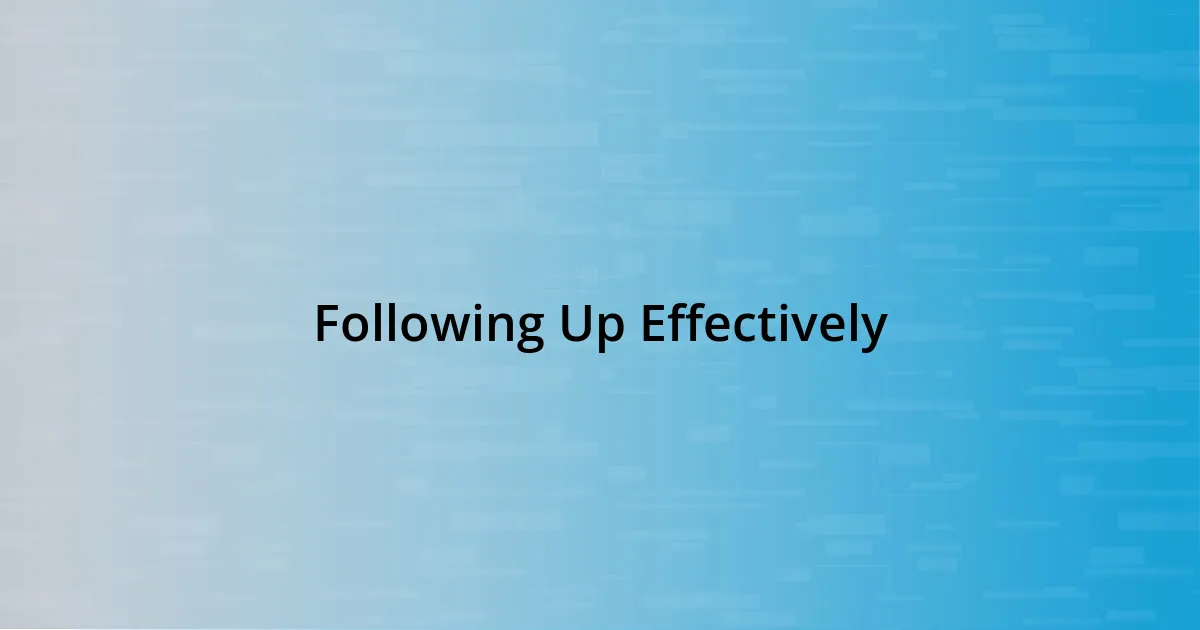
Following Up Effectively
When it comes to following up effectively, timing is everything. I remember a time when I met someone at a conference and promised to follow up within a week. Unfortunately, life got busy, and I neglected to reach out until a month later. By then, our initial conversation had faded in both our memories. I learned the hard way that following up promptly helps to cement the connection while it’s fresh. Have you ever let a valuable opportunity slip away because of poor timing? It’s a small regret that can have big impacts.
In my experience, the content of a follow-up message is just as crucial as the timing. I once sent a simple “great to meet you” note after an event, but it felt flat. Since then, I’ve started including specific references to our conversation, which always generates a better response. For instance, by mentioning a project they discussed, I spark that connection again. It shows I was genuinely interested and engaged in our dialogue. Isn’t it remarkable how personal touches can breathe life into a simple follow-up? This approach has transformed my follow-ups from mundane to meaningful.
Finally, I can’t stress enough the importance of being persistent but respectful. After reaching out a couple of times without a response, I sometimes wonder if I’m bothering the person. I recall when I followed up with a potential collaborator several times over a few weeks. She finally responded with enthusiasm, explaining that she appreciated my persistence. This taught me that a gentle nudge can sometimes lead to unexpected opportunities. Have you experienced this duality between respecting someone’s space and advocating for your interests? Balancing this is an art I’m still mastering.
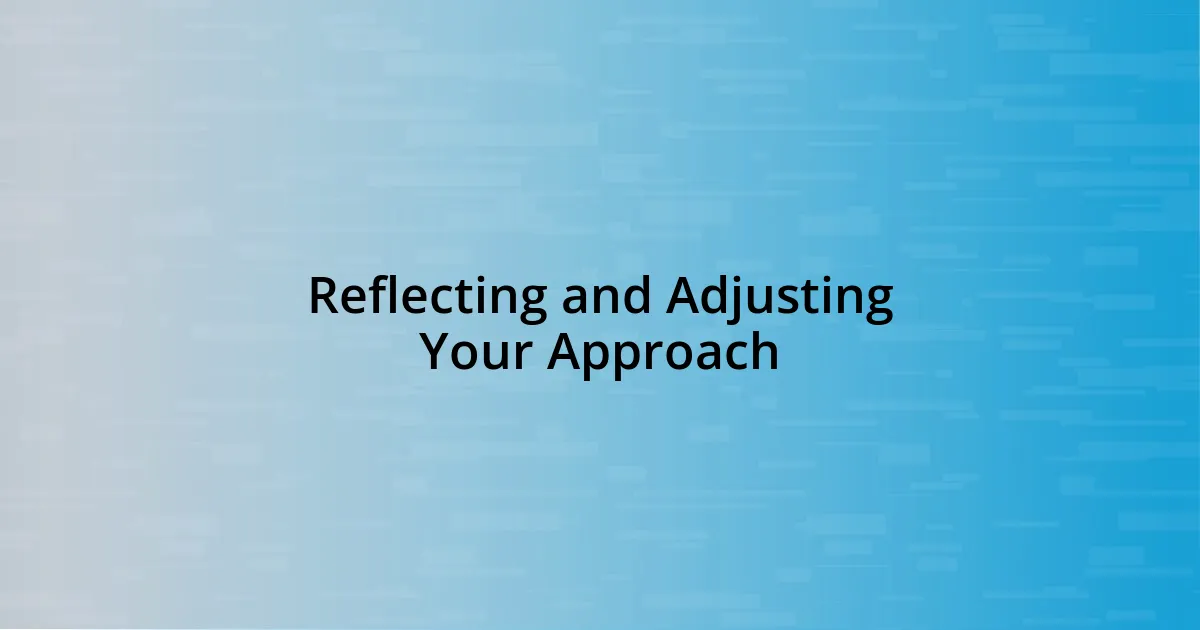
Reflecting and Adjusting Your Approach
Reflecting on my networking experiences has been a game-changer for me. After attending several events, I realized that simply exchanging business cards wasn’t enough. I began to evaluate my interactions, asking myself what went well and what didn’t. This reflection helped me identify my strengths—like my ability to connect over shared interests—and areas for improvement, such as my tendency to monopolize conversations. Have you ever looked back on a networking experience and thought, “What could I have done differently?”
Adjusting my approach became second nature as I incorporated feedback from my reflections. For example, I noticed that when I actively listened and asked open-ended questions, conversations flourished. After recognizing that my nerves often led me to talk too much, I shifted my focus. The next time I engaged with new contacts, I practiced patience, allowing others to share their stories first. This adjustment not only made them feel valued but also sparked deeper connections. Isn’t it interesting how sometimes a slight change in approach can create a ripple effect in relationship-building?
Additionally, I’ve learned the importance of flexibility in my networking strategy. There was a time when I stuck rigidly to my networking goals—like meeting a specific number of people each event. However, I soon realized that quality trumps quantity. Now, I prioritize genuine connections over lofty numbers, which has led me to some unexpected friendships and collaborations. Have you ever felt pressured to meet a certain benchmark, only to find that the real victories lie in the nuanced relationships you build? Adjusting my mindset around networking has truly enriched my professional journey.







